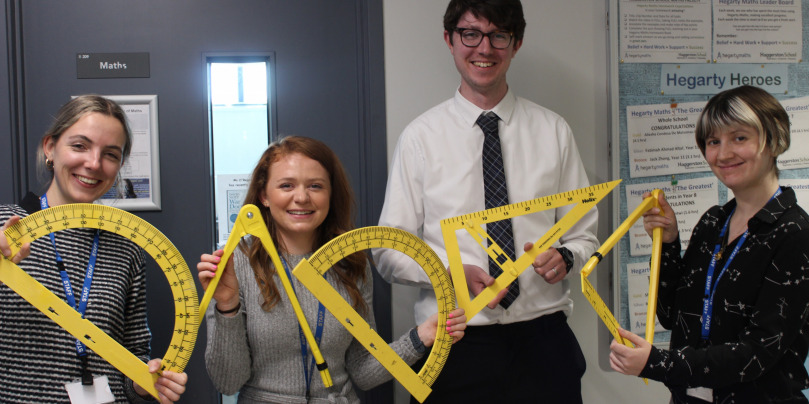
Mathematics GCSE
What will you study?
- How to use mathematics to problem solve.
- How to look for patterns in numbers and shapes and then identify rules about them.
- The knowledge and understanding of the use of mathematical language and signs.
- How to investigate using mathematics and how to develop other strategies including algebra.
- How to use calculators and computers effectively to help with your mathematics.
Careers
Mathematics can lead to a range of amazing and exciting career opportunities, including aerospace and defence, biosciences, engineering, banking and finance, IT, science and research. Mathematics is seen as a “facilitating” subject by all universities meaning that it is highly regarded no matter what you wish to study or specialise in. This is due to the problem solving nature of the course, which is a highly desirable skill. In fact, many top universities and courses now require mathematics A-Level even though it may not appear applicable e.g. Psychology, Sociology and Geography!
The Course
The Mathematics GCSE has two tiers of entry:
- Foundation (grades 1 – 5)
- Higher (grades 4 – 9)
At the beginning of Year 9 you will have started studying for your GCSE. Each course contains content from the four different attainment targets: Number and Algebra, Shape and Space and Handling Data. You will be taught using a variety of resources including worksheets and textbooks (Edexcel GCSE (9-1) Mathematics).
How will you be assessed?
The course is linear which means that there will be a final examination at the end of Year 11.
| This will consist of 3 papers: | ||
| Paper 1: Non-Calculator | 80 marks | 1 hour 30 minutes |
| Paper 2: Calculator | 80 marks | 1 hour 30 minutes |
| Paper 3: Calculator | 80 marks | 1 hour 30 minutes |






